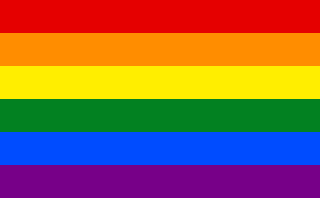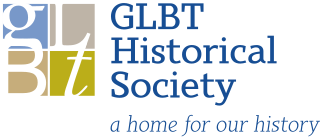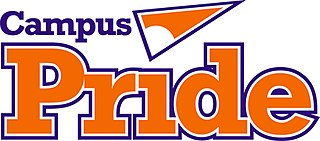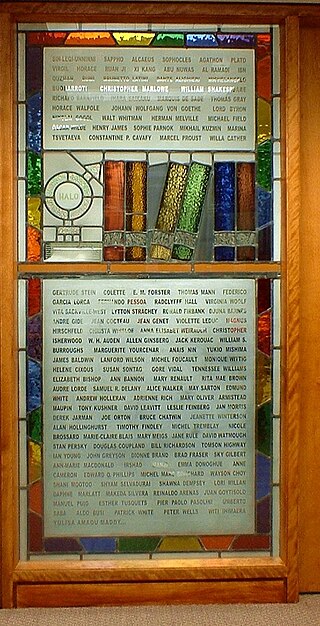
LGBTQ is an initialism of lesbian, gay, bisexual, transgender and queer or questioning. It is an umbrella term, broadly referring to all sexualities, romantic orientations, and gender identities which are not heterosexual or cisgender.

LGBTQ culture is a culture shared by lesbian, gay, bisexual, transgender, and queer individuals. It is sometimes referred to as queer culture, while the term gay culture may be used to mean either "LGBT culture" or homosexual culture specifically.
The origin of the LGBT student movement can be linked to other activist movements from the mid-20th century in the United States. The Civil Rights Movement and Second-wave feminist movement were working towards equal rights for other minority groups in the United States. Though the student movement began a few years before the Stonewall riots, the riots helped to spur the student movement to take more action in the US. Despite this, the overall view of these gay liberation student organizations received minimal attention from contemporary LGBT historians. This oversight stems from the idea that the organizations were founded with haste as a result of the riots. Others historians argue that this group gives too much credit to groups that disagree with some of the basic principles of activist LGBT organizations.
Fine By Me was an organization in the United States, and now a project of Atticus Circle, with a mission to give voice to friends and supporters of lesbian, gay, bisexual, and transgender (LGBTQ) people. The organization developed a project to print T-shirts bearing the phrase "gay? fine by me" and then worked with communities to distribute and wear the T-shirts to show acceptance and support for LGBT people and publicly demonstrate against homophobia.
COLAGE is an organization created in 1990 by the children of several lesbian and gay parents and guardians who felt a need for support.

Robyn Ochs is an American bisexual activist, professional speaker, and workshop leader. Her primary fields of interest are gender, sexuality, identity, and coalition building. She is the editor of the Bisexual Resource Guide, Bi Women Quarterly, and the anthology Getting Bi: Voices of Bisexuals Around the World. Ochs, along with Professor Herukhuti, co-edited the anthology Recognize: The Voices of Bisexual Men.
LGBT student centers and services are administrative offices of a college, university or students' union that provide resources and support for lesbian, gay, bisexual, and transgender (LGBT) students. LGBT has expanded to LGBTQ2IA+ to include lesbian, gay, bisexual, transgender, queer, two-spirit, intersex, asexual and other identities.
The Queer Student Cultural Center is the current incarnation of the coming out, gay, lesbian, bisexual, transgender, genderqueer, intersex, and allied communities organization of the University of Minnesota campuses that has been active since May 1969.

The GLBT Historical Society maintains an extensive collection of archival materials, artifacts and graphic arts relating to the history of LGBTQ people in the United States, with a focus on the LGBT communities of San Francisco and Northern California.
Point Foundation is a scholarship fund that provides financial aid for lesbian, gay, bisexual, transgender, and queer (LGBTQ+) college bound students in the United States. Founded in 2001, the overall mission of this organization to give these individuals the opportunity to receive the resources that they need to become pillars in society. It is one of only a few scholarship organizations that is solely for LGBTQ+ students.

Gay Student Services v. Texas A&M University, 737 F.2d 1317 is a court case in which the Fifth U.S. Circuit Court of Appeals held that the First Amendment required public universities to recognize student organizations aimed at gay students. In 1976, Texas A&M University denied official recognition to the Gay Student Services Organization on the grounds that homosexuality was illegal in Texas, and the group's stated goals—offering referral services and providing educational information to students—were actually the responsibility of university staff. The students sued the university for violation of their First Amendment right to freedom of speech in February 1977. For six years, the case wound its way through the courts; although the trial court ruled in favor of Texas A&M several times, the Fifth U.S. Circuit Court of Appeals repeatedly overturned the verdict. The U.S. Supreme Court declined to take the case, letting stand the circuit court ruling that the students' free speech rights had been compromised.

Campus Pride is an American national nonprofit 501(c)(3) organization founded by M. Chad Wilson, Sarah E. Holmes and Shane L. Windmeyer in 2001 which serves lesbian, gay, bisexual and transgender (LGBT) and ally student leaders and/or campus organization in the areas of leadership development, support programs and services to create safer, more inclusive LGBT-friendly colleges and universities.

The Houston GLBT Community Center was a community center for gay, lesbian, bisexual, and transgender people and their allies in the Houston metropolitan area and southeast Texas. Its last location was in the Dow School building in the Sixth Ward of Houston.
The Gay, Lesbian, Bisexual, Transgender and Straight Alliance (GLBTSA) of the University of North Carolina at Chapel Hill is the largest LGBTIQ student organization in the Southeastern United States. GLBTSA sponsors the annual Southeast Regional Unity Conference as well as Lambda magazine, the nation's oldest LGBTIQ student publication. The general body holds weekly meetings as well as guest speakers, drag shows, retreats, trips, and service projects. GLBTSA has three additional programs: Colors, Committee for a Queerer Carolina (activism), and Fruit Bowl (social).
The Spectrum Center is an office at the University of Michigan in Ann Arbor that is dedicated to providing education, outreach, and advocacy for the lesbian, gay, bisexual, transgender, queer, and allied (LGBTQA) community. Since the organizations' creation in 1971, the Spectrum Center's mission statement has been to "enrich the campus experience and develop students as individuals and as members of the LGBTQA community." The organization achieves this through student-centered education, outreach, advocacy and support.
Arlene Istar Lev is a North American clinical social worker, family therapist, and educator. She is an independent scholar, who has lectured internationally on topics related to sexual orientation and gender identity, sexuality, and LGBTQ families.

The David Bohnett Foundation is a private foundation that gives grants to organizations that focus on its core giving areas – primarily Los Angeles area programs and LGBT rights in the United States, as well as leadership initiatives and voter education, gun violence prevention, and animal language research. It was founded by David Bohnett in 1999. As of 2022, the foundation has donated $125 million to nonprofit organizations and initiatives.

In the post-Stonewall era, the role of libraries in providing information and services to LGBTQ individuals has been a topic of discussion among library professionals. Libraries can often play an important role for LGBTQ individuals looking to find information about coming out, health, and family topics, as well as leisure reading. In the past 50 years, advocate organizations for LGBTQ content in libraries have emerged, and numerous theorists have discussed various aspects of LGBTQ library service including privacy concerns, programming, collection development considerations and librarian/staff education needs, as well as special services for juvenile and teen patrons.
This is a timeline of notable events in the history of non-heterosexual conforming people of Asian and Pacific Islander ancestry, who may identify as LGBTIQGNC, men who have sex with men, or related culturally-specific identities. This timeline includes events both in Asia and the Pacific Islands and in the global Asian and Pacific Islander diaspora, as the histories are very deeply linked. Please note: this is a very incomplete timeline, notably lacking LGBTQ-specific items from the 1800s to 1970s, and should not be used as a research resource until additional material is added.










